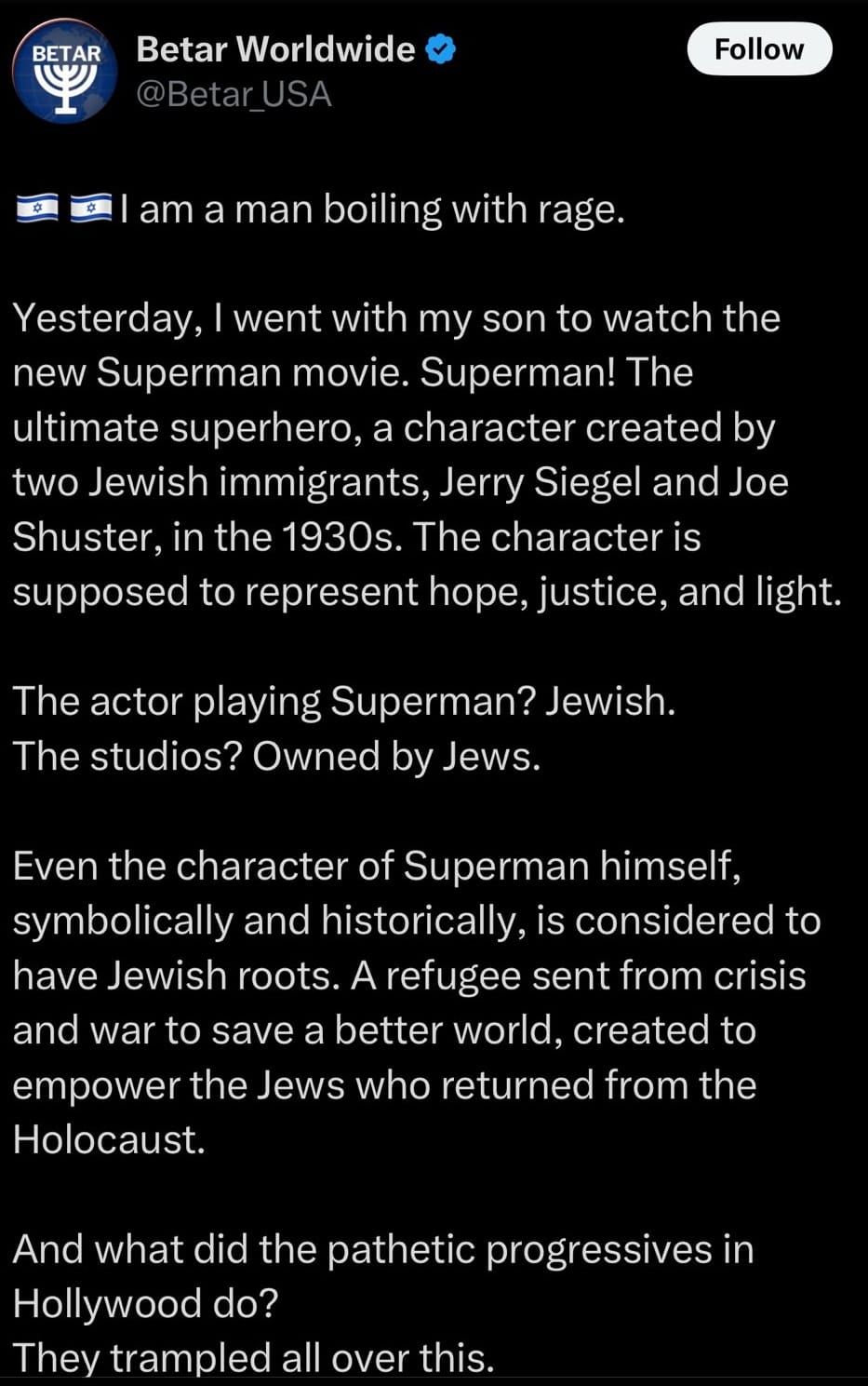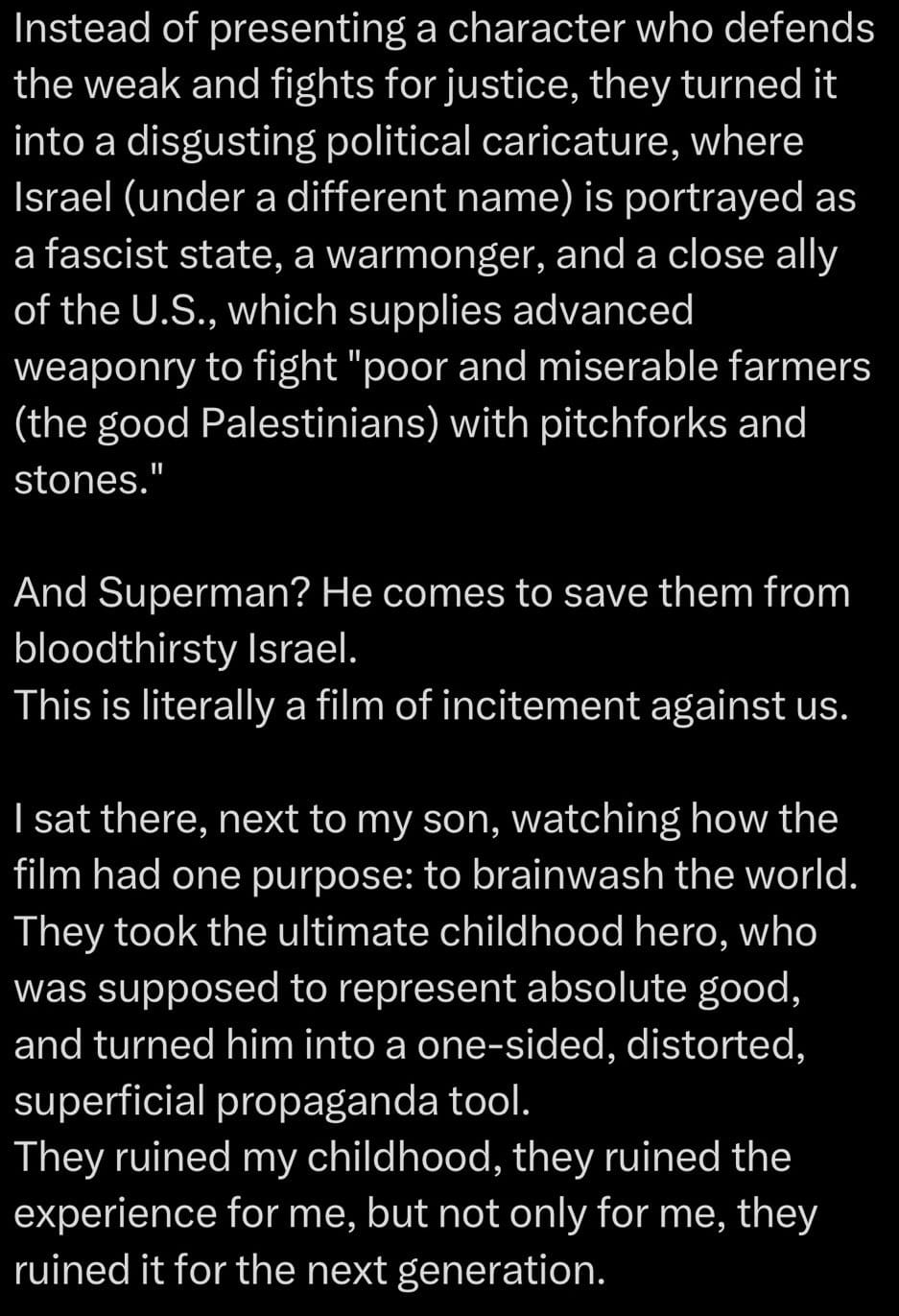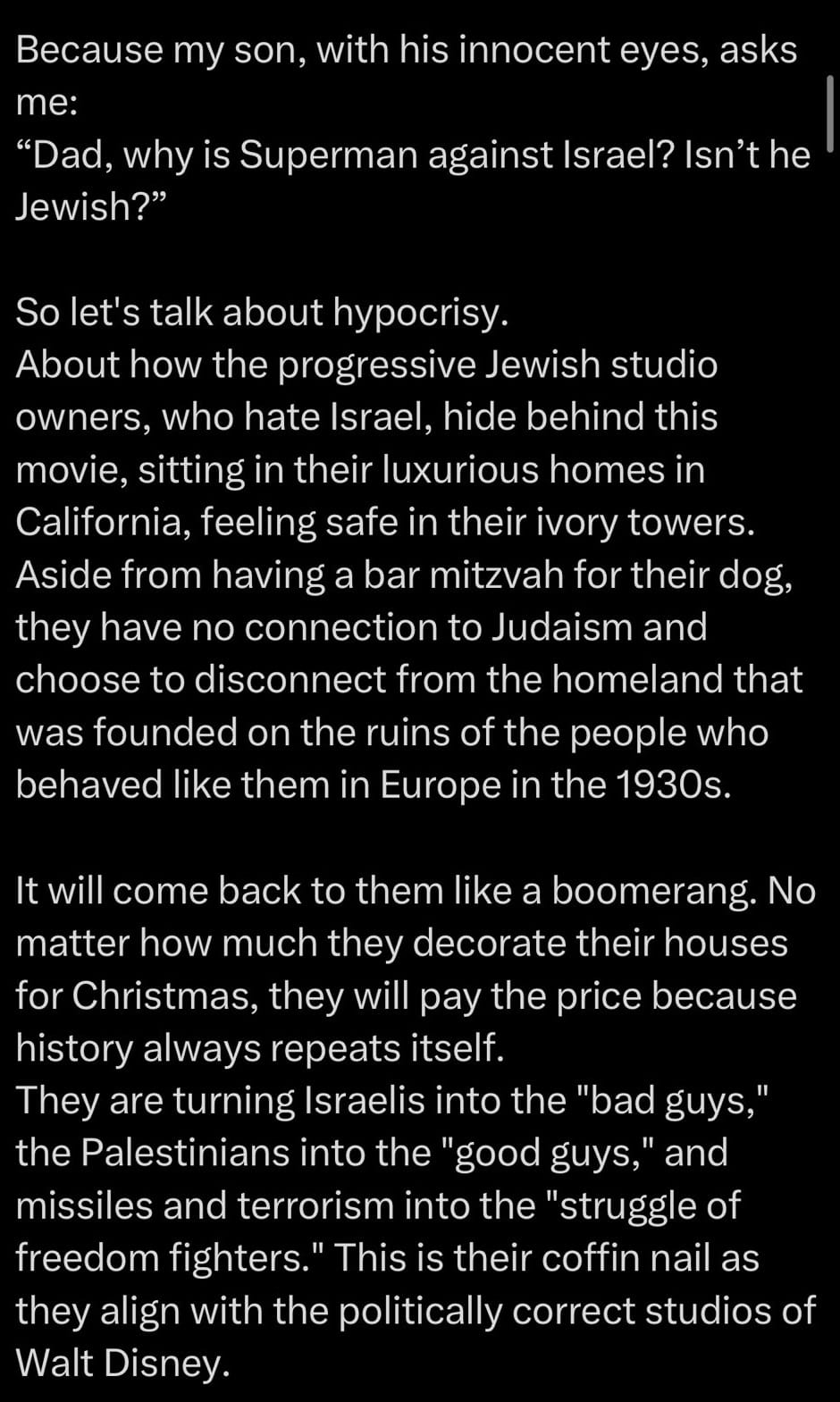
The future of antisemitism
We can't get confused about what constitutes anti-Jewish prejudice.
In the aftermath of World War II, the world recoiled in horror at the revelation of the Holocaust.
People everywhere pledged never to forget the Nazis' crimes. Holocaust museums, tolerance exhibits, works of art and literature, memorial parks and gardens devoted to the dead, former concentration camps transformed into sites of solemn witness—all these things were created in service of the worthy cause of remembering the victims and ensuring that no atrocity like this would never happen again.
However, that declaration of "Never again" contained a small, yet crucial asterisk. Did it mean "Never again" as in no more genocides against anyone? Or was it "Never again" in a narrower sense—as in, this must never happen to Jewish people again, regardless of the cost?
In October 2023, Hamas militants from Gaza staged a terrorist attack on Israel, committing atrocities against innocent people. However, by any reasonable reckoning, the ultra-right-wing Netanyahu government is responding with even worse atrocities. The Israeli military has flattened almost all of Gaza with massive bombardments. They're cutting off food, fuel and medicine to starve the survivors. Tens of thousands of innocent Gazans, including children, are dead or dying. International observers have defined Israel's war on Gaza as an attempted genocide in progress.
Whenever I comment on this, I feel it necessary to declare my bona fides. I've never been to Israel, and I have no ties there. But I do have friends both Jewish and Palestinian Muslim. I consider myself Jewish, not in a religious sense, but in the sense of ethnicity and culture. I'd certainly be counted as Jewish under any criteria a neo-Nazi would be likely to dream up.
There's no sense or reason trying to decide who started the Israeli-Palestinian conflict, who's more at fault, or whose cause is more just. That dreary recounting of historical atrocities only stirs up bitterness on both sides. The past offers no pathway out of this conflict. The only escape, if there is one, lies in the future.
Antisemitism is real (no buts)
There should be no room for ambiguity about this: Despite all that's been done in the cause of tolerance, Jewish people still face prejudice throughout the world. Antisemitism is real, it still exists, and it's still a serious problem.
That's nowhere more true than in the United States. The current president made common cause with torch-wielding white supremacists who marched while chanting, "Jews will not replace us!" His most fervent supporters are devoted to the QAnon conspiracy theory, which repackages old antisemitic lies in modern garb.
There's also Elon Musk, one of the wealthiest and most politically outspoken billionaires in the world. He infamously gave the Nazi salute in public, as well as releasing an AI that's praised Adolf Hitler and parroted other white supremacist ideas.
Incidents like these are why it's so important to recognize antisemitism for what it is—so that it can be effectively resisted, so people who repeat antisemitic tropes out of ignorance can be enlightened, and so the electorate won't be swayed by it. We can and should call it out wherever it rears its head.
That's why we have to face a painful paradox: when it comes to the continuing agony of Gaza, Israel's most fervent defenders are the ones muddying the water. They seek to define criticism of the actions of Israel as anti-Jewish prejudice.
That's not exaggeration for emphasis. It's what they say in their own words.
In an election in my district, a progressive candidate was accused of having signed onto an "anti-semitic pledge of hate" for supporting the BDS (Boycott, Divestment and Sanctions) movement. There are also politicians—not anonymous kooks, but elected officeholders—who say it's against the law to boycott Israel. They demand legal punishment for people who express that forbidden opinion.
Israel, Columbia and the IHRA
Last but not least, there's Columbia University, which was the site of student protests and civil disobedience last year.
After months of threats and denunciations from Donald Trump, Columbia has knuckled under. To unlock hundreds of millions in federal funding that the Trump administration froze to punish the university for allowing protests, they've agreed to adopt the controversial International Holocaust Remembrance Alliance definition of antisemitism.
The IHRA definition includes "targeting of the state of Israel", "claiming that the existence of a State of Israel is a racist endeavor", "requiring of [Israel] a behavior not expected or demanded of any other democratic nation", or "drawing comparisons of contemporary Israeli policy to that of the Nazis" as potentially antisemitic speech acts.
As an open letter signed by over a hundred civil organizations points out, these guidelines can easily be used to suppress legitimate criticism of Israel's actions:
Some advocates of the IHRA working definition have presented it as a non-controversial "consensus definition". However, many leading antisemitism experts, scholars of Jewish studies and the Holocaust, as well as free speech and anti-racism experts, have challenged the definition, arguing that it restricts legitimate criticism of Israel and harms the fight against antisemitism.
Again, because these things need to be said: Israel is not the same as Jews or Judaism. Not all Israelis are Jewish; not all Jewish people are Israeli. Protesting Israel's actions, or even calling for it to be boycotted or sanctioned, are not attacks on Judaism or on Jewish people as a whole. That's no different than claiming that Martin Luther King Jr.'s civil rights movement was an existential attack on all white Americans.
READ: It is time for the end of Zionism
There's an antisemitic trope called "dual loyalty" which claims that Jewish people can't be trusted, because they'll always be more loyal to Israel than to the nation they live in. If push comes to shove, they'll betray their own country's interests in favor of Israel. Another manifestation of this species of prejudice is assuming that all Jews are collectively responsible for anything Israel does.
In a massive historical irony, it's these defenders of Israel who are now making a dual loyalty argument. They're claiming that Jewish people are synonymous with Israel, and vice versa—and so, any critique of Israel is an attack on all Jews everywhere.
Identifying with the warmongers
Here's an anecdote from pop culture that shows how this mentality leads to absurd places.
In the new Superman movie that came out this summer, the inciting incident is that Superman takes it upon himself to stop a war between two fictional countries, Boravia and Jarhanpur. The complication is that Boravia, the aggressor, is an American ally.
There's nothing in the movie that identifies either of these places with a real country. Boravia is vaguely eastern European, while Jarhanpur is vaguely Indian. However, some people only had to hear "Superman stops an American ally from invading another country"—and immediately leaped to the conclusion that Boravia must be a stand-in for Israel, and thus, that Superman is inciting people to hate Jews.
Here's one Zionist account on Twitter fuming over this supposed insult:



All I can say about this is, if you watch a movie about a superhero stopping a villain's plot to start a war for his own selfish gain, and you reflexively identify with the warmonger... that says less about the culture than it does about you.
Why this matters
It's not just the cynical use of antisemitism to suppress debate about Israel's actions or to shut down criticism of its ruling party that we should object to. That's only the tip of the iceberg. The bigger problem is that this tactic is morally corrosive. It robs a serious accusation of its gravity.
By conflating opposition to the war on Gaza with prejudice against Jewish people as a whole, Israel's defenders are making it easy for real antisemites to camouflage themselves. They're handing a ready-made defense to those who spread prejudice: "I'm just being smeared by Zionists because I criticize Israel! They say that about anyone who disagrees with them about anything!"
The unpopularity of the war has already emboldened antisemites around the world to speak up, cloaking their bigotry in the guise of pro-Palestinian advocacy. When defenders of Israel assist in conflating the two, it's playing right into their hands.
The actor Mandy Patinkin (best known as Inigo Montoya in The Princess Bride) gave a powerful speech which lays out how dangerous this is:
It serves the interests of extremists on both sides to sow this confusion. The most radical Zionists and right-wing war supporters in Israel wield the accusation of antisemitism indiscriminately, to make people more hesitant to oppose them. Meanwhile, actual antisemites will happily claim anyone who expresses even a whisper of criticism of Israel, as a way of bolstering their perceived numbers and popular support.
If this tactic becomes established, the result will be a world that's worse for everyone—Jewish and non-Jewish alike. It will be a world of deeply entrenched fundamentalism, where immutable battle lines are drawn based on tribalism and our common humanity is forgotten. It will be a world where bigotry and hatred is normalized and accepted, where each side perceives the other as inherently evil and subhuman. It will be a world of more draconian law and oppression, more terrorism, and endless violence, war and death.
That future isn't in anyone's interest. But it doesn't have to be that way. There's still a narrow path of possibility to choose a better future, a world of peace and coexistence. But the time remaining to make that choice is rapidly running out.
